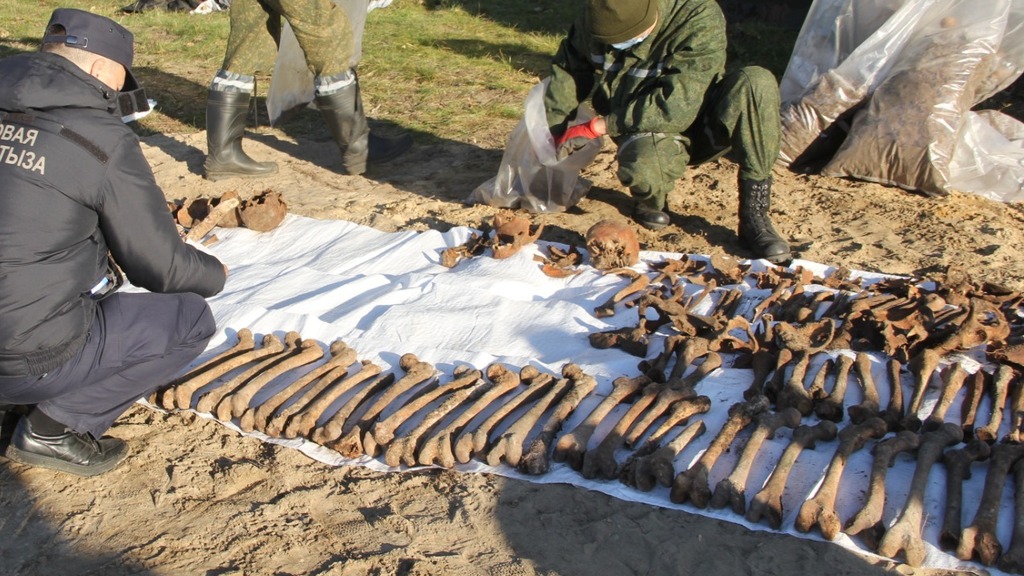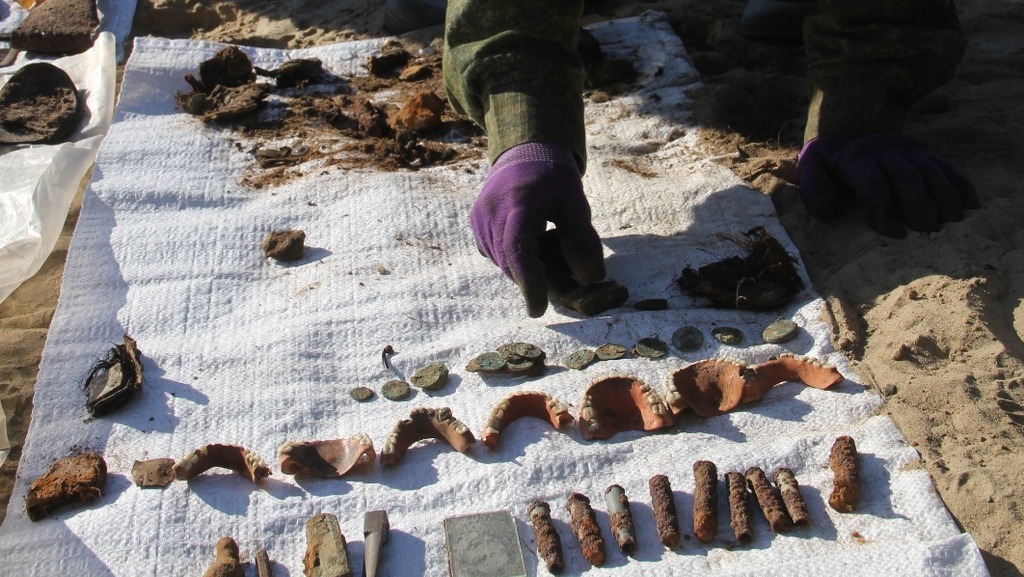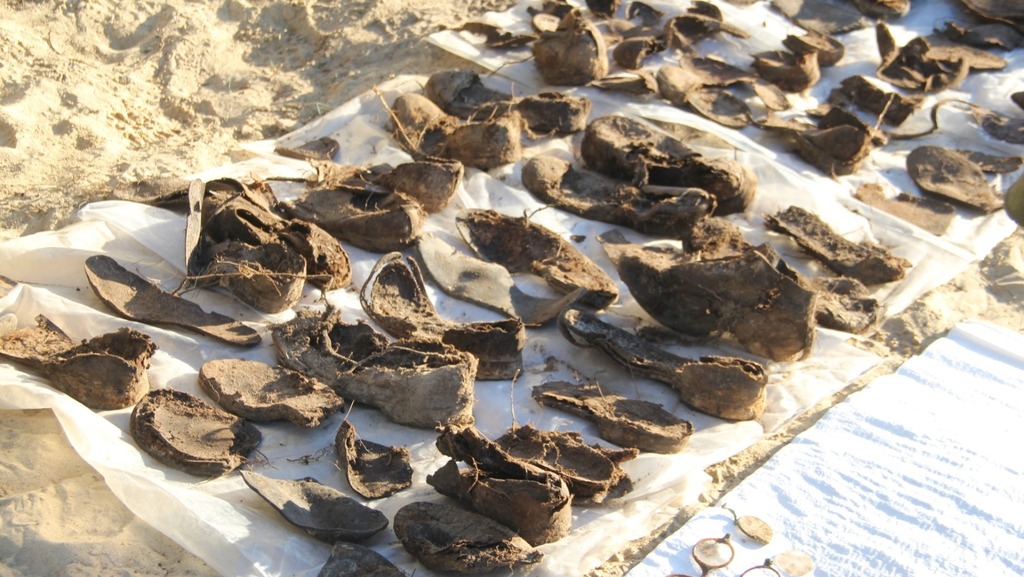Getting your Trinity Audio player ready...
The remains of about 1,400 Jewish men who were murdered by the Nazis during World War II were discovered in a mass grave in the Belarusian town of Luninets.
“For decades, we searched for the men’s place of burial, and only last week did the excavation work begin where the bones were discovered," said Ilana Sela, who led the search after the grave together with her late father, Shlomo Alfiner, who grew up in the town.
3 View gallery


The bones of some of the victims found in the mass grave, in Luninets, Belarus
(Photo: Belarus 1)
The 1,400 men whose remains were found in Luninets were murdered in August of 1941 by 300 executioners of the Nazis' Police Battalion 306, whose job was to carry out mass executions in German-occupied areas of the Soviet Union.
The excavations were carried out by members of the Forensic Unit at the country’s Defense Ministry, who thus far opened two of the seven tombs at the site, and exhumed the remains of about 150 people buried at the site, as well as dozens of personal items, including combs, shoes, glasses and even dentures.
Until its liberation in July 1944, more than 16,000 civilians were murdered by the Nazi regime in the Luninets District, which is located in Belarus' Brest Region. According to historic accounts, at least 600 victims were burned alive, about 200 of whom were children.
In 2019, Belarusian authorities interred the remains of more than 1,200 Jewish Holocaust victims whose remains were unearthed in the Brest region as well by builders who stumbled upon the Nazi-era mass grave during construction work.



